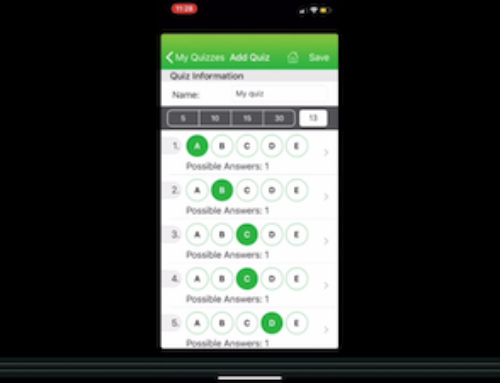Our Spotlight on Outstanding Teachers
Today: Joey Curtis, Elementary School Math Teacher
What do teachers make? They make a difference! Teachers are the most important part of what we do at DBE. But let’s get real! Teachers are some of the most important people in our society…period!
Meet the Champions shines a spotlight on outstanding teachers, and how they make a difference. Right here on the Quick Key Blog, we will be interviewing real working teachers from around the globe, who make a difference in their classrooms every day.
Joey Curtis is an amazing teacher. I had the privilege of teaching across the hall from her. Her classroom was always filled with children learning and growing. Joey does not “play” in the classroom, and at the same time the kids know without a shadow of a doubt that they are surrounded by love, fun, and support every second they spend with her. I often say “the most important things I have learned about teaching have come from other teachers.” Joey Curtis is one of those teachers. She is a 15 year veteran of the classroom and skating enthusiast who brings math to life for her students.
So, without further ado…let’s meet a champion!
DBE: Why did you choose to become a teacher?
JC: I can’t say I wanted to become a teacher. It sort of found me. I was an Engineering student in my third year. I was frustrated and it wasn’t fun. I knew I loved kids and immediately thought I’d intern while I was at Ohio State to see if I liked it. Fortunately, I had a phenomenal supervising teacher who showed me how much fun the job could be. I switched majors and never looked back.
DBE: What is the biggest highlight from your classroom this year?
JC: My highlight from my classroom really came this summer. While leaving a restaurant for lunch, a car drove past and I heard, “Hey, Ms. Curtis!” When I turned around I yelled for the car to stop. When I looked in the car I saw two former students I had taught, one of which I had just a few months ago. This young student was a boy I pushed in math with everything I had. I went so far as to clip multiplication sentences to his uniform. The best part of this story is when I leaned inside the window and asked him what 9 x 3 was? He knew…and smiled. Not something he did very often!
DBE: Tell us about a teacher who inspired you. How did they do it? What made them great?
JC: My supervising teacher, Linda Packard, is one who has inspired me more than any other. She knew the potential I had to make connections with students. Noting my strength, she paired me with a student who needed it. From that grew the passion to pull out the stops to get students learning. I’ve done headstands in class, roller skated to demonstrate science principles, and attended activities outside of schools to build relationships. Linda taught me that! Our connection continues as I have become like a member of her family and see her often!
DBE: How can technology help you be more efficient in the classroom?
JC: I use technology to enhance learning. I will always require students to critically think and do the arduous work of learning. Technology can often raise lazy learners. They expect it to be quick. Students want to have their answers with a click of a button. Life and learning life’s lessons are not that easy. I want them to appreciate hard work, and then realize how they can take their thinking and learning to the next level. It isn’t just about getting things done quicker. There is an art to technology and I want kids to see it and earn it!
DBE: What is really hard about teaching, and how do you deal with it?
JC: There are several issues that concern me in education. One is paperwork. There is a lot of demand to collect data and not a lot is done with it. Teachers know their students. I don’t need to test them every other week to tell you their strengths and weaknesses. Just ask me.
My greater concern is the lack of discipline and consequences in schools. Students are constantly getting bullied, teachers are being verbally and physically assaulted and parents are bypassing the teacher when settling conflict. There seems to be an accepted policy to allow students numerous chances to turn in homework late, retake a test, avoid a consequence for behavior. Students need consequences. I set rules and standards of behavior in my classroom and follow through with them. I do what is best for students. They need consequences. They need deadlines. The thing to remember is that the students who pass through my doors will one day make policy for me. I want it to be time bound, thoughtful and consistent. It is my job to mold leaders of tomorrow. I take that job seriously! Popular or not….




